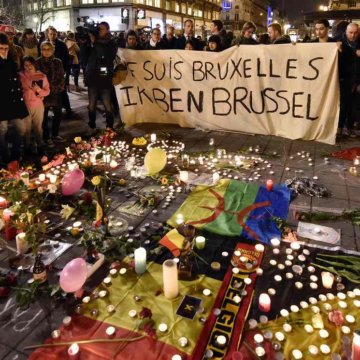- About
- Topics
- Picks
- Audio
- Story
- In-Depth
- Opinion
- News
- Donate
- Signup for our newsletterOur Editors' Best Picks.Send
Read, Debate: Engage.
Isis has claimed responsibility for the despicable acts of terorrism carried out in Brussels' Zaventem airport and on the city's metro on Tuesday, killing 31 people and injuring dozens more.
In the past 10 days, deadly attacks have also killed and injured scores of people in Turkey and Cote d’Ivoire.
“Our hearts go out to all those who have lost loved ones, and to the many victims of these gruesome and despicable attacks,” said Lotte Leicht, European Union director at Human Rights Watch. “At this moment of horror, these outrages to our core principles provide all the more reason to protect human rights and the rule of law.”
Human Rights Watch called on Belgian authorities to respond with a strong commitment to the rule of law and human rights in their efforts to prevent further attacks and possible acts of retaliation against communities and individuals.
“We need to protect the human rights principles that extremists are flouting,” Leicht said. “That is our common challenge.”
It certainly is. And that also means upholding the rights of those with different religions to our own, migrants who have come to Europe in earnest search for a better life, and those with asylum seeker status who have legal and moral right to seek safety on Europe's shores.
The worst response Europe could have would be to fight back harder, to give in to panic in what terrorism specialist Béatrice de Graaf has aptly called the “theatre of fear”.
Iyad El-Baghdadi, once a Salafist and jihadist who now strongly condemns Isis, says love is the best answer to Isis, for “love destroys their faith”. By forging friendships with Muslims, he says, “you defeat Isis”. If we respond with fear and hate, this will strengthen it.
Journalist Nicolas Hénin, who was held captive by Isis, similarly believes that it is a conscious Isis strategy to provoke attacks from the west. That way it gets more support from the population that is affected by these attacks. As Hénin says: “Bombing they expect; what they fear is unity.”
